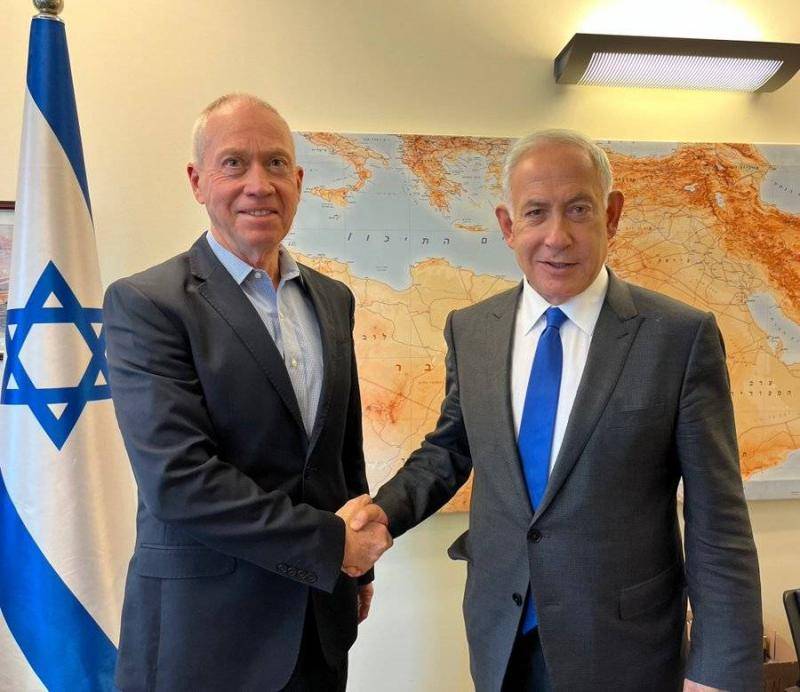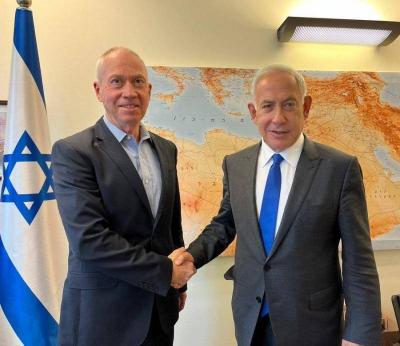Disagreements continue to seep within the corridors of the Israeli government led by Benjamin Netanyahu. A new crisis has ignited between Netanyahu and his Defense Minister Yoav Gallant. The Prime Minister warned the minister against jeopardizing the stability of the government by failing to present the new recruitment law for voting in the Knesset, according to Israeli broadcasting authority reports today. Netanyahu told Gallant, "If you do not present a decision to the government on Sunday regarding the vote in the Knesset on the recruitment law, you are endangering its stability."
The minister responded, saying, "I ask for a few more days to try to reach an understanding with Benny Gantz," a member of the War Council and leader of the "National Camp" party. Last week, Gallant announced that he would not present the new recruitment law, which exempts ultra-Orthodox or religious Jews from military service, for a vote as long as there is no consensus in the government and the War Council on this law. Gantz opposes the bill and demands the participation of all segments of Israeli society in compulsory military service. Meanwhile, Netanyahu had pledged to the religious parties that had previously participated in his government to pass a new recruitment law that would exempt them from military service in exchange for their agreement to join and support his government in the Knesset.
This discord follows comments made earlier this week by the Chief Rabbi of Eastern Jews (Sephardim), Yitzhak Yosef, who sparked outrage by stating in a religious lecture that religious Jews would leave Israel if compulsory service was imposed on them. He added at the time, "All these secularists must understand that without the Torah and the religious school, the army would not succeed."
These disagreements come at a critical time for the Israeli Prime Minister, who has faced widespread criticism both domestically and internationally for months. Gallant's recent visit to Washington earlier this month (March 2024) left him extremely dissatisfied. However, it also highlighted his declining support behind the scenes of the U.S. administration, due to his approach in Gaza, the significant rise in civilian casualties, as well as his determination to invade the city of Rafah and his opposition to all proposed plans regarding the management of the sector after the war.




